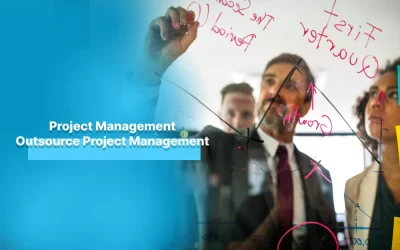CRM MS Dynamics Developer Customer Relationship Management (CRM) systems are essential tools for businesses to manage interactions with current and potential customers. Microsoft Dynamics 365, one of the leading CRM...
Outsource UX Design
outsource ux design In today’s fast-paced digital landscape, businesses are continually striving to create exceptional user experiences to stay ahead of the competition. User Experience (UX) design plays a crucial role...
What is outsourcing project management?
What is outsourcing project management? Project management is the application of knowledge, skills, tools, and techniques to project activities to meet project requirements. It involves planning, executing, and closing...
What is an Agile Coach?
What is an Agile Coach? An Agile Coach is a professional who helps organizations, teams, and individuals adopt and improve agile practices and principles. They play a pivotal role in facilitating agile transformations,...

What is a quality control engineer ?
What is a quality control engineer?
A Quality Control Engineer, also known as a Quality Assurance Engineer or QA Engineer, is responsible for ensuring that products or services meet the required quality standards. Their role involves developing and implementing quality control processes, conducting tests and inspections, identifying defects or issues, and working closely with development teams to resolve them. Here are some key responsibilities of a Quality Control Engineer:
1. Quality Control Processes: A Quality Control Engineer designs and establishes quality control processes and procedures to ensure that products or services meet the specified standards and requirements. They define quality metrics, set up inspection and testing protocols, and develop documentation for quality control procedures.
2. Testing and Inspection: QA Engineers perform various types of tests and inspections to assess product quality. They may conduct functional testing, performance testing, usability testing, and other types of tests to identify defects or deviations from the desired quality standards. They use tools and techniques to automate testing processes when applicable.
3. Defect Identification and Reporting: When defects or issues are identified, Quality Control Engineers meticulously document and report them. They create detailed defect reports, including steps to reproduce the issue, and work closely with development teams to address and resolve the problems.
4. Process Improvement: QA Engineers continuously seek opportunities to improve quality control processes. They analyze data and metrics related to product defects, test results, and customer feedback to identify areas for improvement. They collaborate with cross-functional teams to implement process enhancements and drive continuous improvement initiatives.
5. Documentation and Compliance: Quality Control Engineers maintain documentation related to quality control activities, including test plans, test cases, test scripts, and quality metrics. They ensure compliance with relevant industry standards, regulations, and quality management systems, such as ISO 9001.
6. Collaboration and Communication: QA Engineers work closely with cross-functional teams, including developers, project managers, and product owners, to ensure a shared understanding of quality requirements. They collaborate during the development lifecycle to prevent quality issues and provide feedback to improve product design and development processes.
7. Training and Support: Quality Control Engineers may provide training and support to other team members regarding quality control processes, tools, and techniques. They assist in creating awareness and understanding of quality standards and best practices across the organization.
Overall, a Quality Control Engineer plays a critical role in maintaining and improving product quality. They focus on implementing robust quality control processes, conducting thorough tests and inspections, and ensuring that products or services meet the highest quality standards before they are released to customers.
Read More : Full Stack Developer vs Software Developer
What does it mean to Outsource Your Quality Control engineer?
Outsourcing your QC Engineer means hiring an external company or contractor to handle the quality control aspect of your product or service. Instead of having an in-house QC Engineer or team, you delegate the responsibility to an external entity.
When you outsource your QC Engineer, the external entity takes over the tasks typically performed by an in-house quality control team. This can include developing and implementing quality control processes, conducting tests and inspections, identifying defects, and reporting issues.
Here are some key aspects of outsourcing your Quality Control engineer:
1. Hiring an External Company/Contractor: You engage a third-party company or contractor specializing in quality control services. They have the expertise and experience necessary to handle quality control tasks for your product or service.
2. Delegating Quality Control Activities: The external entity becomes responsible for managing quality control processes on your behalf. They work closely with your development teams, following the agreed-upon quality standards, and executing the necessary tests and inspections.
3. Expertise and Resources: By outsourcing, you gain access to a dedicated team of quality control professionals who have specialized knowledge and skills in quality assurance. They bring their expertise, tools, and resources to ensure effective quality control.
4. Cost and Time Efficiency: Outsourcing your QC Engineer can be cost-effective compared to building an in-house quality control team. It eliminates the need for hiring and training new employees, investing in infrastructure, and managing ongoing costs associated with an in-house team. Additionally, outsourcing allows you to focus your internal resources on core business activities and save time in recruitment and onboarding.
5. Scalability and Flexibility: Outsourcing offers scalability and flexibility in quality control operations. The external provider can adjust their resources based on your project requirements, allowing you to scale up or down as needed.
6. Risk Mitigation: By outsourcing quality control, you leverage the expertise of professionals who follow established quality control processes and best practices. This helps mitigate risks associated with product defects, compliance issues, and customer dissatisfaction.
7. Communication and Collaboration: Effective communication and collaboration with the outsourced QC Engineer are essential. Clear communication channels, regular updates, and feedback mechanisms should be established to ensure alignment with your quality goals and requirements.
It’s important to carefully select an outsourcing partner with a strong track record in quality control and relevant industry expertise. Clear expectations, service level agreements (SLAs), and quality metrics should be defined and agreed upon to ensure successful outsourcing of your QC Engineer.
How to become a quality control engineer?
To become a Quality Control Engineer, you typically need a combination of education, skills, and experience. Here are the steps you can follow to pursue a career as a Quality Control Engineer:
1. Obtain a Relevant Education: A bachelor’s degree in a field such as engineering, quality assurance, industrial engineering, or a related discipline is often required or preferred for Quality Control Engineer positions. Some universities and colleges offer specialized programs in quality control or quality assurance.
2. Gain Knowledge and Skills: Acquire knowledge and skills relevant to quality control engineering. Focus on areas such as quality management systems, statistical process control, quality control methods, quality assurance principles, and relevant industry standards and regulations. Develop a strong understanding of engineering principles and processes.
3. Gain Experience: Look for opportunities to gain practical experience in quality control. This can be through internships, co-op programs, or entry-level positions in quality control or related roles. Seek out organizations or industries where quality control is emphasized, such as manufacturing, automotive, pharmaceuticals, or aerospace.
4. Develop Technical Skills: Hone your technical skills related to quality control. This includes proficiency in statistical analysis tools, quality control software, data analysis, and testing methodologies. Familiarize yourself with quality control tools such as Six Sigma, Lean, or Total Quality Management (TQM).
5. Obtain Certifications: Consider obtaining certifications that demonstrate your expertise in quality control. Certifications such as Certified Quality Engineer (CQE) offered by the American Society for Quality (ASQ) can enhance your credibility and marketability as a Quality Control Engineer.
6. Stay Updated: Keep yourself updated with the latest trends, advancements, and best practices in quality control engineering. Attend conferences, workshops, and seminars related to quality control. Engage in continuous learning to enhance your skills and knowledge.
7. Develop Soft Skills: Effective communication, problem-solving, attention to detail, analytical thinking, and teamwork are important skills for a Quality Control Engineer. Develop these skills to excel in your role, as you will be collaborating with cross-functional teams and communicating quality-related information.
8. Network and Seek Opportunities: Build a professional network in the quality control field. Attend industry events, join professional organizations, and connect with professionals in the industry. Utilize online platforms and forums to engage with quality control communities. Explore job opportunities through online job boards, company websites, or recruitment agencies.
9. Continuous Improvement: Quality control is a field that requires continuous improvement. Embrace a mindset of continuous learning and improvement. Seek feedback from experienced professionals, learn from your experiences, and strive to enhance your skills and knowledge throughout your career.
Read More : What’s the difference between ux and ui design
Remember, the specific requirements and expectations for becoming a Quality Control Engineer may vary depending on the industry, organization, and job market. It’s important to research and understand the specific qualifications and job requirements in your desired field to tailor your educational and professional development accordingly.





